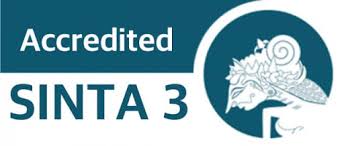THE URGENCY OF EMBEDDING RELIGION-BASED LITERACY FOR FUTURE MOSLEM’S INTELLECTUALS
DOI:
https://doi.org/10.52366/edusoshum.v1i3.35Abstract
One of the fields that is a benchmark for the progress of a nation is education. The world of education is one of the most logical paths towards an advanced future. Therefore, the world of education must have the proper guidelines so that the learning process can run effectively and efficiently. The Method used in this study is a literature review, namely by conducting a comprehensive literature review of previous relevant studies, then analyzing the concepts developed. The results of the study state that the primary thing that becomes a reference so that future generations can become intellectuals and be able to think critically is through Literacy. Formal education provides a reading culture system in the learning curriculum with the support of the environment and adequate facilities. Meanwhile, non-formal education starts from family education which is based on Islam. Thus, it is hoped that it can positively impact the Indonesian nation, especially the Muslim generation, in readiness to face life in the next era. In order to be able to compete in the global world and build a new civilization, it is undoubtedly better than the previous civilization, namely with a moderate and dignified civilization.
References
Ayu, D., & Syukur, T. A. (2019). Kompetensi Pendidik Agama Dalam Surat Al- ‘ Alaq Perspektif Tafsir Al-Misbah. Hikmah, XV(14), 217–249.
Azhar, I. (2020). Literasi Digital Dan Kritikal Bagi Para Pebelajar Masa Pandemi Covid-19. Jurnal Komunikasi Dan Penyiaran Islam, 4(2), 89–102.
Baron, A., & Armstrong, M. (2007). Human Capital Management. In KOGAN PAGE: London and Philadelphia. https://doi.org/10.1007/978-3-030-02006-4_207-1
Chu, PH. and Chang, Y. (2017). John W, Creswell, Research Design: Qualitative, Quantitative, and Mixed Methods Approaches. Journal of Social and Administrative Sciences, 4(June), 3–5.
Dwi Laksana, S. (2016). Integrasi Empat Pilar Pendidikan (UNESCO) dan Tiga Pilar Pendidikan Islam. AL-IDARAH: Jurnal Kependidikan Islam, 06(1), 43–61. https://doi.org/https://doi.org/10.24042/alidarah.v6i1.789
Dyah Utami, L. (2021). Tingkat Literasi Indonesia di Dunia Rendah, Ranking 62 Dari 70 Negara. https://perpustakaan.kemendagri.go.id/?p=4661
Halafoff, A., Singleton, A., Bouma, G., & Rasmussen, M. Lou. (2020). Religious Literacy of Australia’s Gen Z teens: Diversity and Social Inclusion. Journal of Beliefs and Values, 41(2), 195–213. https://doi.org/10.1080/13617672.2019.1698862
Muhajang, T., & Pangestika, M. D. (2018). Pengaruh Literasi Informasi Terhadap Efektivitas belajar Siswa. 2(2), 15–22.
Mulyono, H., & Halim, N. (2015). Literasi Informasi Dan Kritis: Urgensi, Perspektif Islam, Dan Integrasi Dalam Kurikulum Pendidikan. Jurnal Tarbiyah, 22(2), 313–329. http://dx.doi.org/10.30829/tar.v22i2.30
Nugroho, A., & Rahmawati, D. N. (2018). Indeks Pembangunan Manusia (A. Said, W. Winardi, & Y. Karyono (eds.); Vol. 148). Badan Pusat Statistik.
Pane, A., & Darwis Dasopang, M. (2017). Belajar Dan Pembelajaran. FITRAH:Jurnal Kajian Ilmu-Ilmu Keislaman, 3(2), 333. https://doi.org/10.24952/fitrah.v3i2.945
Priscilla, C., & Yudhyarta, D. Y. (2021). Implementasi Pilar-Pilar Pendidikan UNESCO. Asatiza :Jurnal Pendidikan, 2(1), 64–76.
Saptana. (2008). Keunggulan Komparatif-Kompetitif dan Strategi Kemitraan. SOCA: Jurnal Sosial Ekonomi Pertanian, 2.
Serdarmayanti. (2002). Strategi Pemberdayaan Sumber Daya Manusia Melalui Pengembangan Kreativitas, Inovasi, Pendayagunaan Modal Intelektual Sebagai Kekayaan Baru Organisasi guna Menghadapi Masa Depan (pp. 9–18).
Subandini, I. (2012). Sastra, Literasi Kritis dan Pendidikan. “The Role of Literature in Enhancing Humanity and National Identity”. Prosiding Konferensi Internasional Kesusastraan XXII UNY-HISKI, 75. https://ublik.id/peran-sastra-dalam-pendidikan-karakter-anak-bangsa/
Sukma, Y. A. A., Agustina, L., Mahmudah, D., Setiawan, A. B., Mustika, R., Dunan, A., & Ratnawati, A. (2019). Perkembangan Ekonomi Digital di Indonesia: Strategi dan Sektor Potensial. Pusat Penelitian dan Pengembangan Aplikasi Informatika dan Informasi dan Komunikasi Publik Badan Penelitian dan Pengembangan SDM Kementerian Komunikasi dan Informatika.
Sunarko, A. (2016). Strategi Pengembangan Potensi Intelektual Muslim. Manarul Qur’an: Jurnal Studi Agama Dan Budaya, 13(1), 1–14. https://ojs.unsiq.ac.id/index.php/mq/article/view/911/482
Suprayitno, T. (2018). Urgensi Literasi Moral dalam Arus Gerakan Literasi Nasional. Prosiding Seminar Nasional Kementrian Pendidikan Dan Kebudayaan, 1–6.
Ulvah, P. M. (2018). Kajian Tafsir Surat Al-‘Alaq Ayat 1-5 Dalam Kitab Al Munir Dengan Metode Tafsir Konvensional Dan Kontekstualisasinya Pada Zaman Sekarang. Jurnal Ilmiah Mahasiswa Raushan Fikr, 7(2), 219–227. https://doi.org/10.24090/jimrf.v7i2.2520
Wartomo. (2017). Membangun Budaya Literasi Sebagai Upaya Optimalisasi Perkembangan Bahasa Anak Usia Dini. Seminar Nasional PGSD Universitas PGRI Yogyakarta. http://repository.uinjkt.ac.id/dspace/bitstream/123456789/36571/2/SAKINAH MAWADAH R-FAH.pdf
World Economic Forum. (2020). The Future of Jobs Report 2020 | World Economic Forum. The Future of Jobs Report, October 1163. https://www.weforum.org/reports/the-future-of-jobs-report-2020/digest
Yetri, Agung, M. I., & Eni, A. (2019). Literasi Keberagamaan Masyarakat Daerah 3T Di Kabupaten Pesisir Barat Serta Relevansinya Dengan Sikap Toleransi Terhadap Penganut Agama Minoritas. Jurnal Studi Lintas Agama, 14 (2) (2), 197–210.













